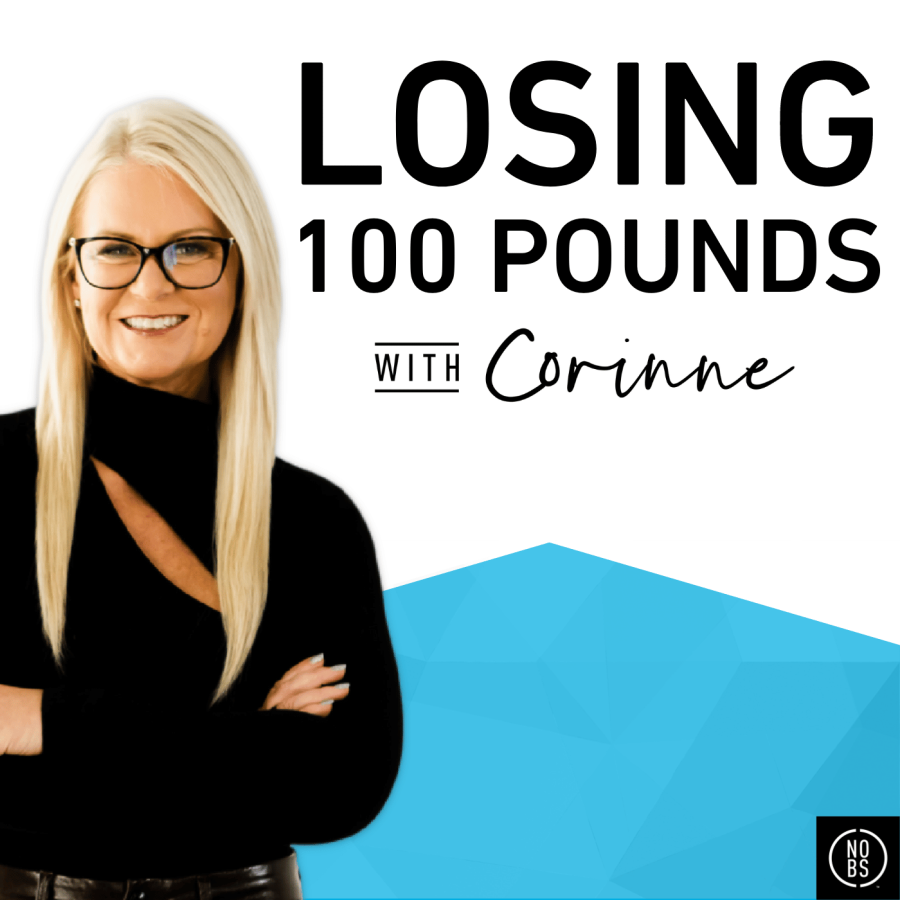Podcast 159. Ending Self-Sabotage
Signup for Corinne’s free weightloss course at www.pnp411.com and get added to her email list!
Corinne has been obsessed with watching TikTok videos right now. She laughed so hard at a video the other day where a nurse was going off about donuts. It reminded Corinne of a blog post she did years ago where she ranted about people giving the gift of fat aka giving donuts/cookies as gifts.
She’s noticed that there have been nights lately where she wants to eat extra or drink wine. When those feelings pop up, she stops to look at her day and where she might not have been controlling her thoughts during the day.
In April, she spent time making sure she was taking good care of herself. She showered daily. She connected with someone each day via text or MarcoPolo. She moved daily.
With so many people at home right now, our self-sabotage patterns are even more present. She’s been questioning whether we are self-sabotaging more or if there is the space to notice it more.
She created a self-sabotage program for her members for the month of May.
Self-sabotage is what happens when you have a desire to do something, but you also want other things at a high level. When the two are staring at each other in the face, the one that wins is the one that feels more comfortable with your natural programming. Grabbing a glass of wine may feel more comfortable than relaxing without alcohol.
Self-sabotage is when we consciously or unconsciously undermine our thoughts, dreams, goals, and desires.
Most people don’t know what the programming is or how it started. Knowing where the programming started, isn’t necessarily super important to figure out. Knowing where it came from will not automatically fix you.
If you’re judging yourself for overeating and thinking something is wrong with you, it might be worth it to trace it back. It might give you some relief and you can drop the “I’m broken” story. Once you find out your origin story, you are 100% responsible for how you show up from that second on. You can’t blame how you were raised anymore.
Corinne has lost 100 pounds. It’s been 15 years. She still struggles with overeating. She has a hard time stopping eating as soon as she knows that she’s physically had enough. She still wants to feel like she got her money’s worth. When those feelings come on, she reminds herself that it’s normal for her to think like that because that’s how she was raised, BUT that isn’t how she chooses to live her life anymore.
Corinne has accepted that she might always have that programming.
Self-sabotage can be conscious or unconscious. It can be that programming like Corinne has or it can be f’it eating where you decide to say forget losing weight and eat the extra donut.
It’s important for a lot of people to figure out how they got here because there will be a relief in knowing that there’s a reason why they made their past decisions and they aren’t just broken.
For most people, the majority of their food stuff started as children. When you ate dinner or went out to dinner, what were some common things your parents said? When you had a bad day, how did your parents handle it? Can you see how those things are still happening in your current life? Just because it happened when you were 12, does it make sense for it to still be happening when you’re 45?
Sometimes your current food opinions come from the people that you hang out with the most. If you have a friend that thinks weekends are for eating and drinking and you always hang out together, you may start to also adopt that mindset.
In Corinne’s self-sabotage course, she helps her members identify what stories they’ve been telling themselves and how to rewrite a new story. The brain will always crave the old version of the story, but the new version can be learned and the brain can be trained to desire the new version.
Kathy self-sabotages when her daughter-in-law brings over cake pops. The belief that is driving that is that she doesn’t know when she’ll get them again. She also tends to believe that she can’t have them, even though she can if she plans them. She still has some underlying beliefs that there are good foods and bad foods. She continues to work on this.
The steps to follow when working through self-sabotage:
1. You need to find the belief that is driving your actions.
2. Then question how that belief started. Is that useful thinking anymore?
3. You can’t blame this belief anymore.
4. Start working on believing new things.
You can have any foods in the house and you can make decisions. You decide what to eat. You don’t have to fear food.
If you have a topic you’d like Corinne and Kathy to talk about on the podcast, please email them to support@pnptribe.com
Membership will open again on June 17th. Are you ready to become a No BS Woman?!?!
Links
www.pnp411.com
https://www.nobsweightloss.com/the-gift-of-fat/



